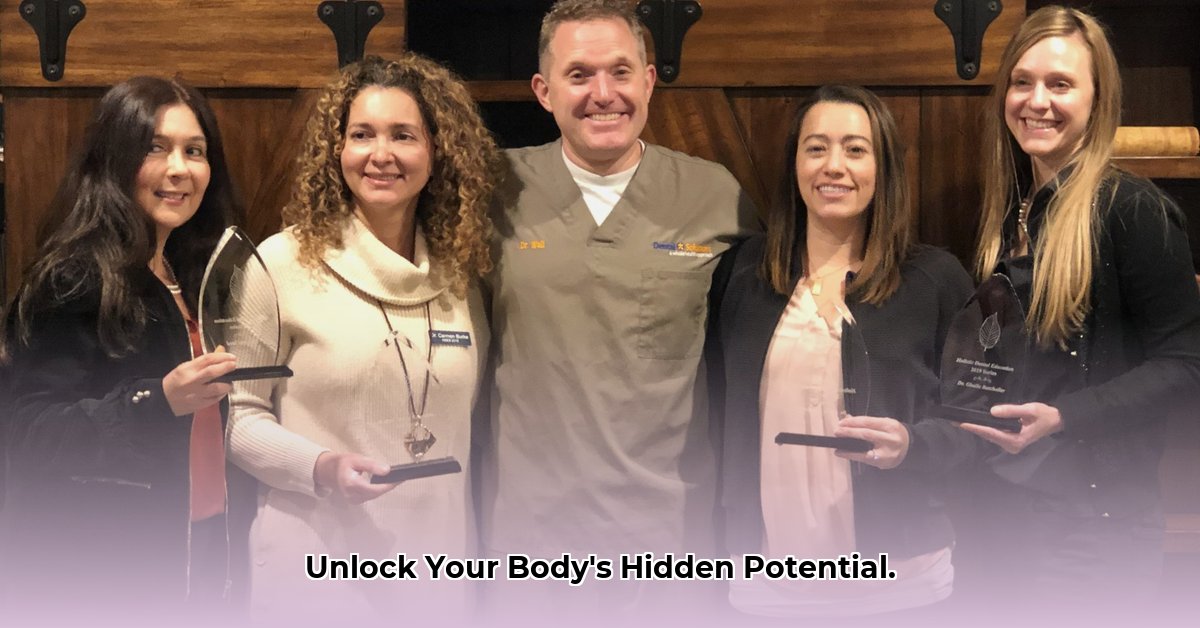
Judson Wall: Revolutionizing Dental Care with a Holistic Approach
Dr. Judson Wall's approach to dentistry prioritizes the interconnectedness of oral and overall health. Unlike traditional dentistry, which often treats the mouth in isolation, Dr. Wall's holistic philosophy recognizes the mouth as a crucial component of the body's overall well-being. He seamlessly integrates conventional dental techniques with complementary therapies, providing a comprehensive approach to patient care. This holistic approach encompasses not just cavity fillings, but a deeper understanding of how lifestyle, diet, and stress influence oral and systemic health. For more information on holistic dentistry, visit this helpful resource.
The Judson Wall Method: A Personalized Approach to Oral Health
Dr. Wall's method emphasizes personalized treatment plans tailored to each patient's unique needs and circumstances. He considers various factors, including lifestyle, diet, and stress levels, to develop a comprehensive approach to oral health. This individualized attention stands in contrast to a one-size-fits-all approach, ensuring patients receive treatments optimized for their specific circumstances. The techniques used frequently include sedation dentistry and the minimally invasive Pinhole Surgical Technique (PST).
Sedation Dentistry and the Pinhole Surgical Technique (PST): Enhancing Patient Comfort and Treatment Efficacy
Sedation dentistry, a key component of Dr. Wall's practice, significantly reduces anxiety and discomfort associated with dental procedures. This allows for more effective treatment as relaxed patients are more cooperative. The PST, a minimally invasive gum regeneration technique, minimizes trauma and often results in faster healing times and enhanced patient comfort. Doesn't the idea of a comfortable and anxiety-free dental experience appeal to you? Many patients report a vastly improved experience with these techniques.
Evidence of Efficacy: Improved Patient Outcomes and Systemic Benefits
Many patients report positive experiences and improved comfort following treatments employing sedation dentistry and the PST. Sedation dentistry significantly reduces anxiety and improves procedural comfort. The PST's minimally-invasive nature often results in faster healing times and reduced post-operative discomfort. While numerous anecdotal reports suggest potential benefits to overall health, it's crucial to acknowledge that further research is needed to fully delineate the long-term systemic effects of holistic dental practices. How can we obtain more definitive evidence to support these observations? Further large-scale studies are necessary.
Challenges and Future Directions in Holistic Dentistry
Despite the potential benefits, holistic dentistry faces challenges. The integration of alternative therapies, such as ozone therapy or neural therapy, often encounters regulatory hurdles due to a lack of extensive, rigorously conducted scientific research supporting their widespread use. The relatively higher cost compared to conventional treatments also poses a significant barrier for many. However, the increasing demand for holistic dentistry, fueled by a patient-centric approach that prioritizes overall wellness, clearly illustrates the field's potential and growing significance.
Dr. Wall is actively involved in advancing the field through educational initiatives and advocacy. He strives to bridge the gap between conventional and holistic dentistry, promoting a more patient-focused approach to oral and overall health. He emphasizes the crucial role of ongoing research to validate long-term benefits and establish clear efficacy metrics for various holistic techniques. How can we accelerate the research process to provide stronger evidence of efficacy? Collaboration between researchers, clinicians, and regulatory bodies is crucial.
Actionable Steps: Integrating Holistic Dentistry into Your Life
For Patients:
- Research dentists in your area who offer holistic dental options and thoroughly vet qualifications. Consider factors like experience, credentials, and patient reviews.
- Engage in open communication with your dentist, discussing your overall health and concerns about potential oral health impacts. Your dentist should be able to clarify your doubts and concerns.
- Evaluate all treatment options, carefully weighing the costs and potential benefits. This will allow you to make informed decisions.
For Dental Professionals:
- Participate in continuing education courses and workshops focused on holistic dentistry techniques and practices. Updating your skills is essential in this evolving field.
- Explore integrating aspects of holistic dentistry, like sedation or the PST, into your practice to improve patient experience and outcomes. This enhances your services and professionalism.
- Contribute to and support research efforts aimed at evaluating the effectiveness and safety of holistic dental treatments. Supporting ongoing research directly reinforces the field's credibility.
Risk Assessment and Mitigation Strategies in Holistic Dentistry
Understanding potential risks is paramount. While Dr. Wall's methods aim to minimize risks, it’s crucial to be aware of possibilities.
| Treatment | Potential Risks | Risk Mitigation Strategies |
|---|---|---|
| Sedation Dentistry | Allergic reactions, respiratory complications, prolonged drowsiness | Thorough patient screening, qualified personnel, emergency protocols, careful monitoring |
| Pinhole Surgical Technique (PST) | Infection, bleeding, unsatisfactory aesthetic results | Careful patient selection, adherence to established protocols, skilled practitioner |
| Ozone Therapy | Tissue damage, potential ozone toxicity (though rare with proper administration) | Strict adherence to safety guidelines, proper practitioner training and certification |
| Neural Therapy | Infection at injection site, rare allergic reactions | Proper training and certification of practitioners, detailed patient assessment |
Judson Wall's contributions represent a significant shift in dental care, emphasizing patient well-being. While integrating alternative therapies and conducting comprehensive research remain ongoing challenges, his commitment to education and patient-centered care is paving the way for a more comprehensive approach to oral health. The dynamic nature of this field necessitates continuous learning and exploration for both patients and practitioners.